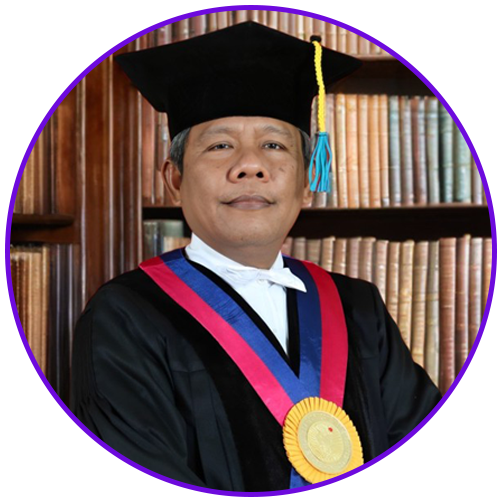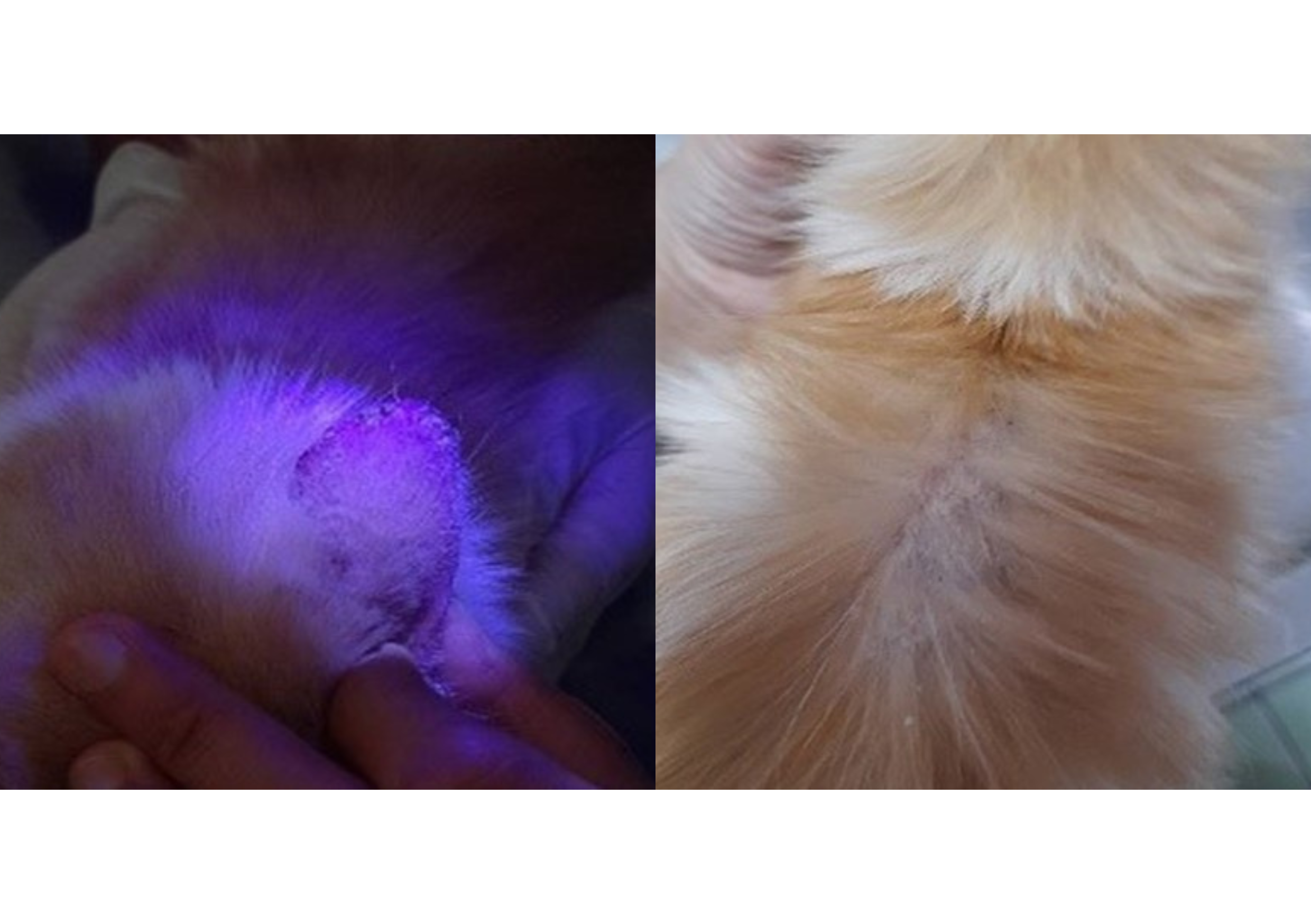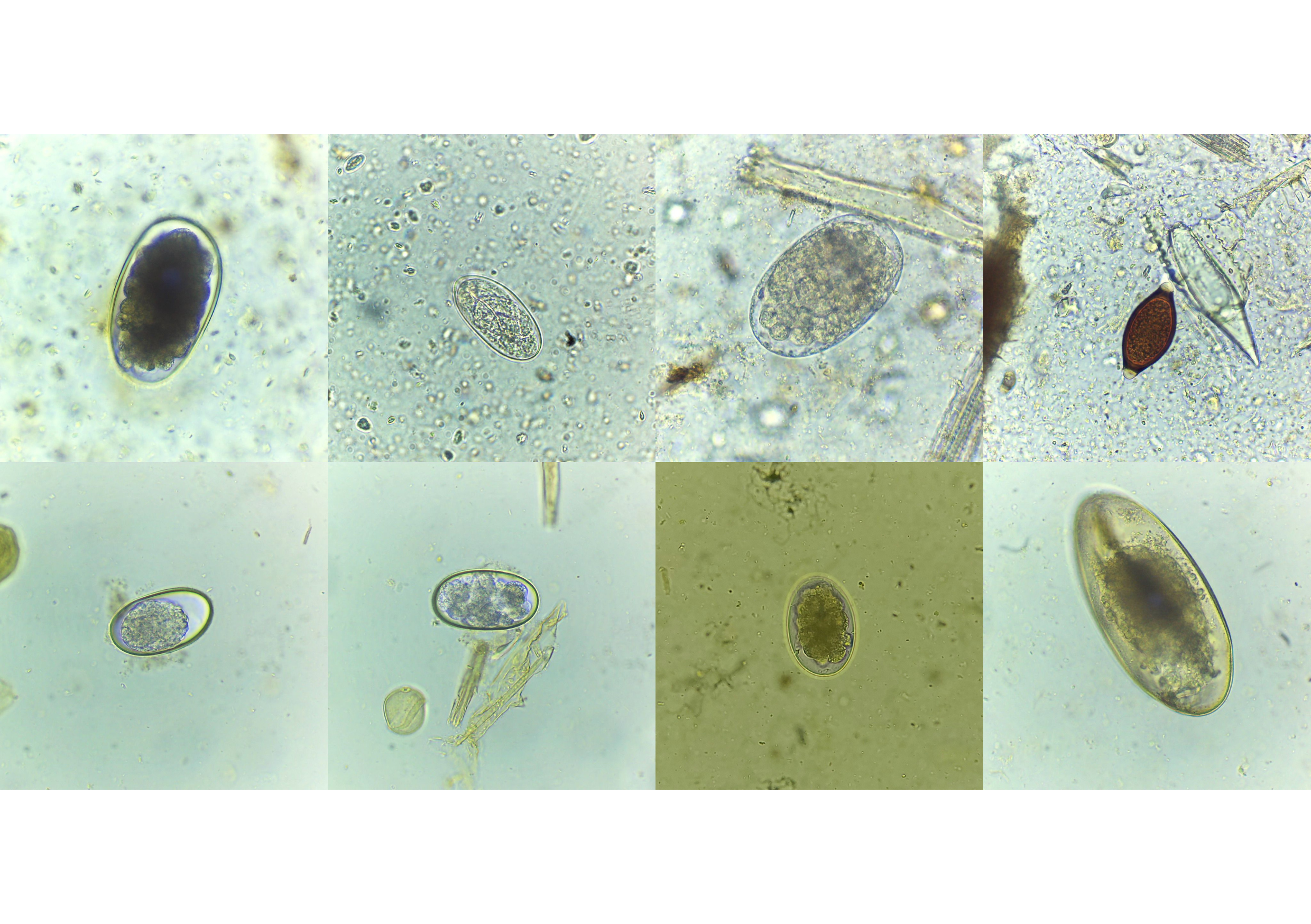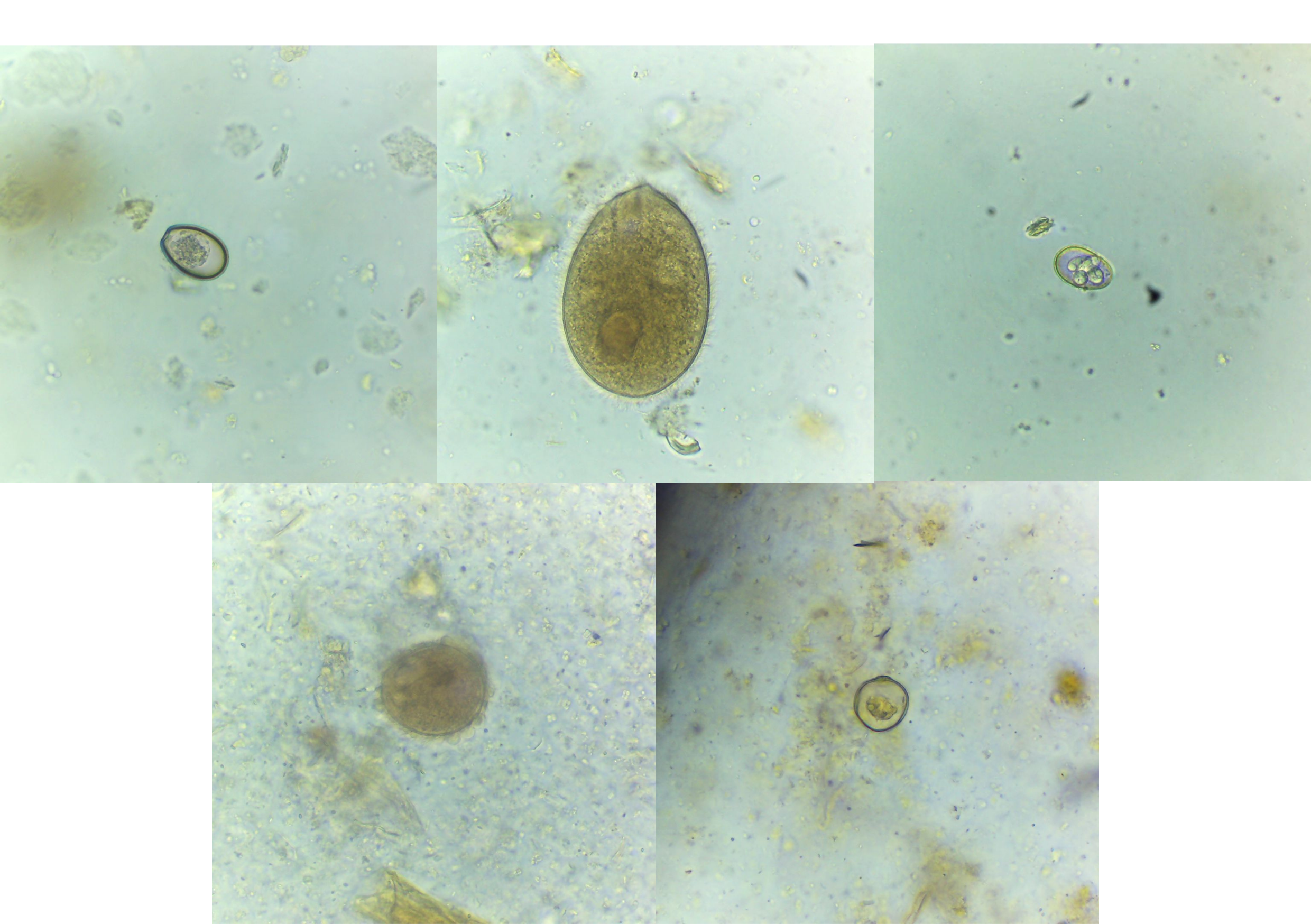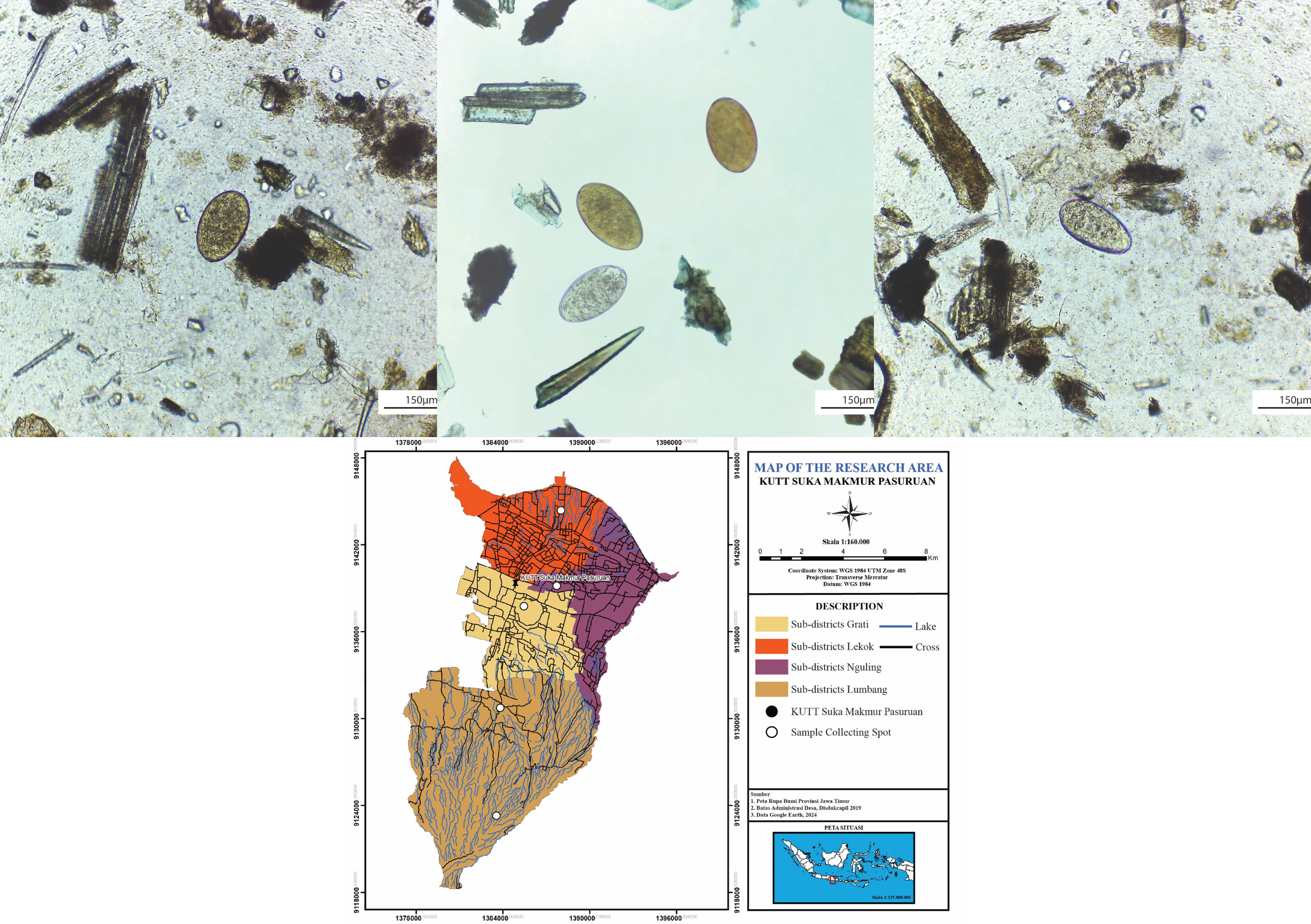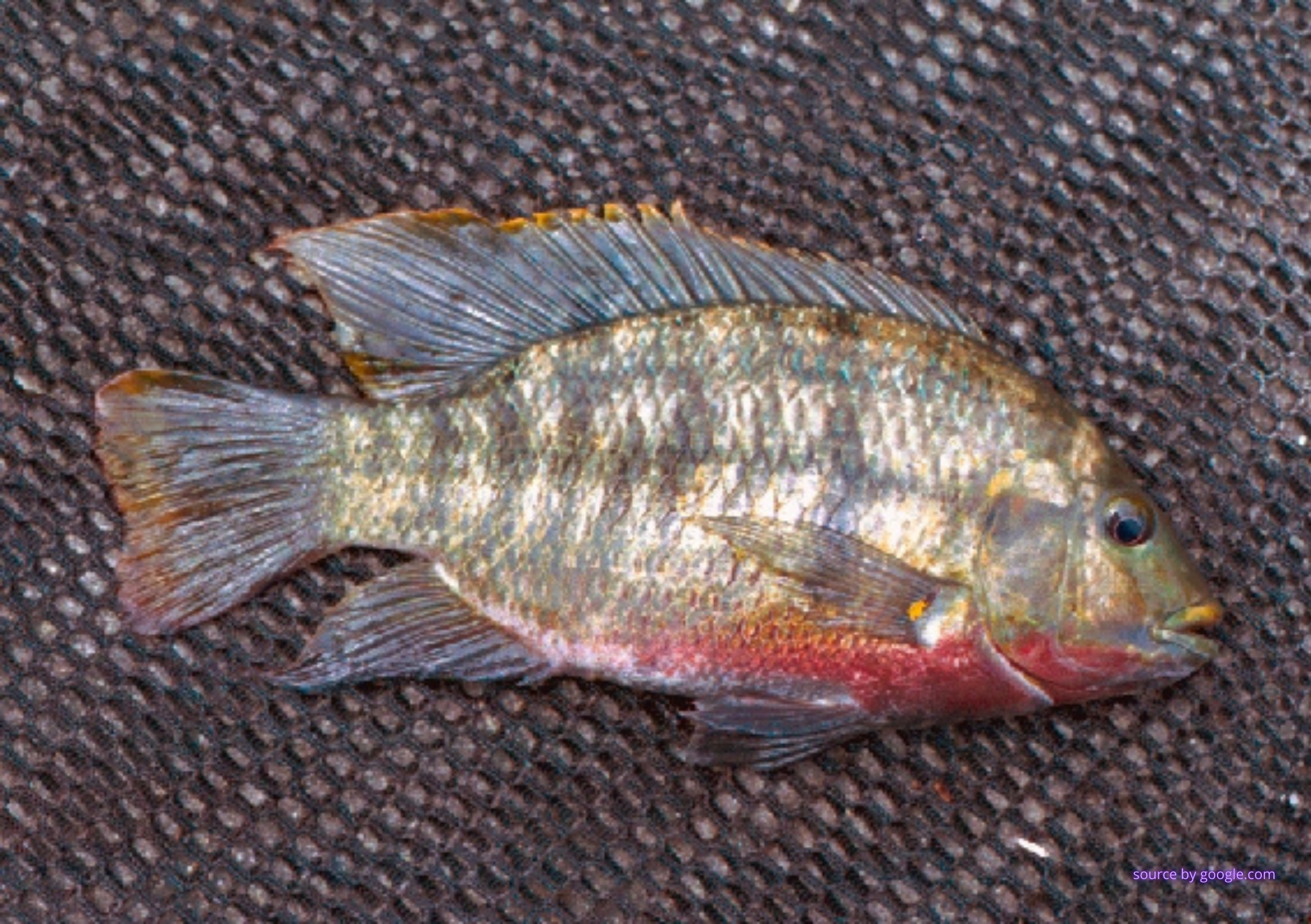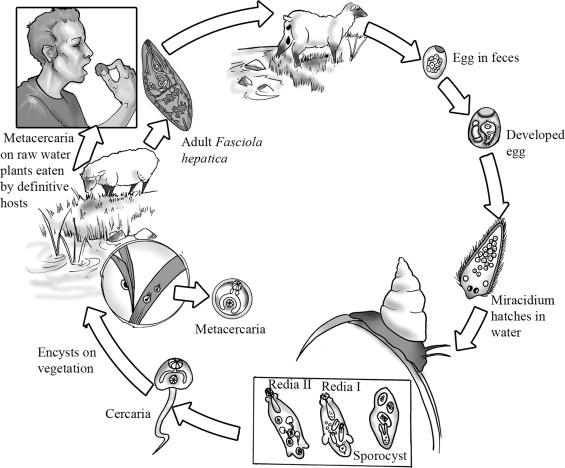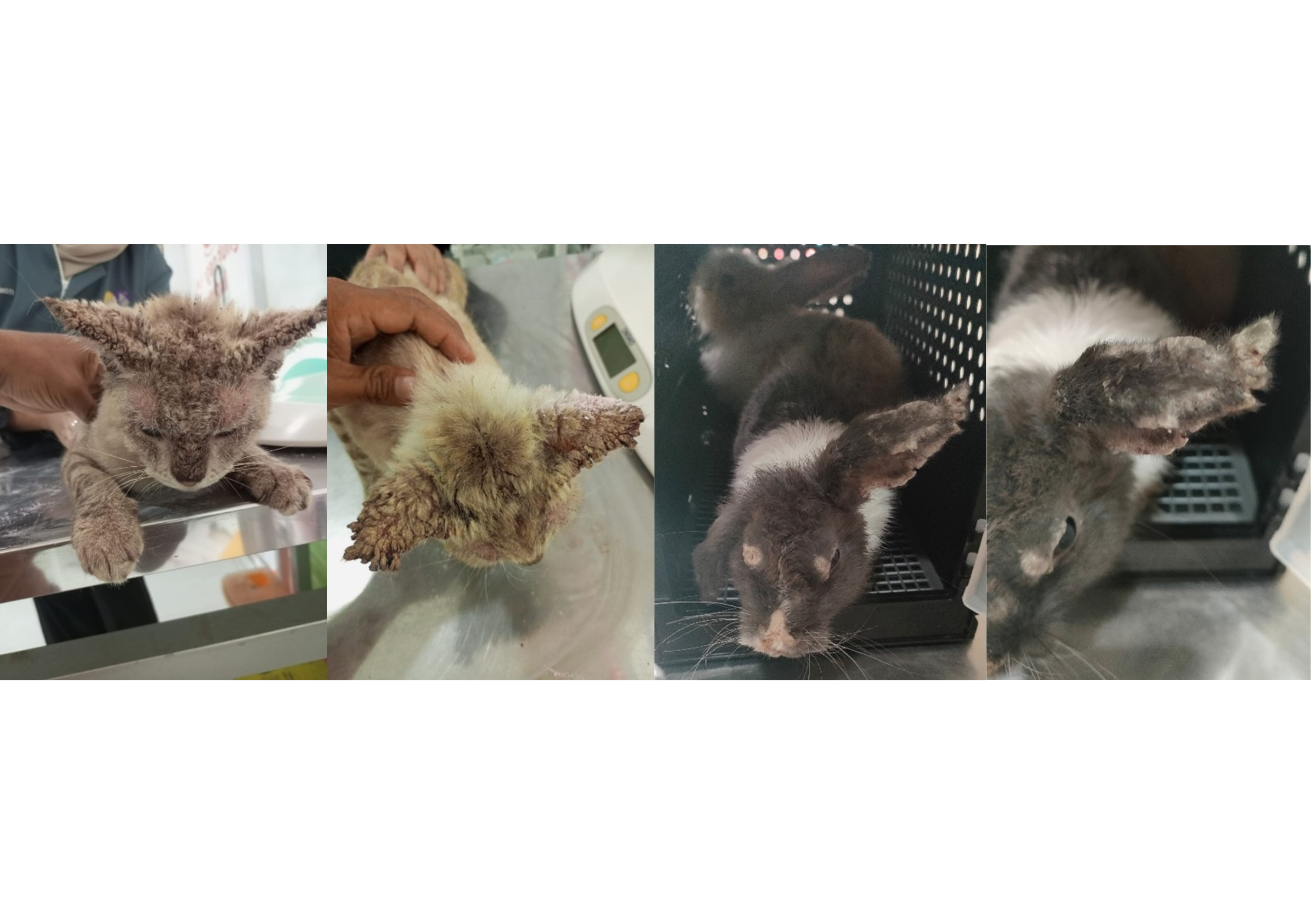Gastrointestinal Endoparasite Infection on Red Foot (Chelonoidis carbonaria) in Surabaya City Based on Fecal Examination
Downloads
Infectious disease which caused by parasite is the most serious problem in tortoise breeding. This study identifies gastrointestinal endoparasites infection on Red Foot (Chelonoidis carbonaria) during November 2020 to February 2021 in Surabaya City. Fecal samples from a tortoise, a total of 14 tortoises were collected and examined by native, sedimentation and floatation methods for parasitic eggs and oocyst. Fecal samples for this research were collected from breeding farm in Surabaya City. Data obtained from this study were presented descriptively and analyzed by Chi-Square test. Based on examination results, the occurrence of gastrointestinal endoparasite infection on Red foot was recorded at 100% from the total samples. The gastrointestinal parasites were identified as helminths and protozoa namely which is dominately by Tachygonetria spp. (14%), Angusticaecum spp. (3%), and Balantidium coli (2%) respectively. The provision of deworming medication as a curative measure by the owner is carried out regularly and continuously on tortoises that are positively infected with gastrointestinal endoparasites and prevention can be done by paying attention to the management and cleanliness of the cage to prevent potential transmission of endoparasites from the environment to the tortoise.
Ahmed, A., Ijaz, M., Ayyub, R. M., Ghaffar, A., Ghauri, H. N., Aziz, M. U., & Javed, M. U. 2020. Balantidium coli in domestic animals: An emerging protozoan pathogen of zoonotic significance. Acta tropica, 203: 105298.
Broin, F.D.L.D., Bour, R., and Perälä, J. 2006. Morphological definition of Eurotestudo (Testudinidae, Chelonii): Second Part In Annales de paléontologie 92(4): 335-357.
Farjana, T., K.R. Islam and M.H. Mondal. 2008. Population Density of Helminths in Ducks : Effects of Host Age, Sex, Breed. Bangladesh Veterinary Journal. 6: 45-51.
Fournie, G., Goodman, S.J., Cruz, M., Cedeno, V., Veles, A., Patino, L., Millins, C., Gibbons, L.M., Fox, M.T., Cunningham, A.A. 2015. Biogeography of parasitic nematode Communities in the Galapagos giant tortoise: Implications for Conservation Management. PloS One 10 (9): e0135684.
Hallinger, M. J., Taubert, A., Hermosilla, C., & Mutschmann, F. 2019. Captive Agamid lizards in Germany: Prevalence, pathogenicity and therapy of gastrointestinal protozoan and helminth infections. Comparative immunology, microbiology and infectious diseases, 63:74-80.
Hallinger, M. J., Taubert, A., Hermosilla, C., and Mutschmann, F. 2018. Occurrence of health-compromising protozoan and helminth infections in tortoises kept as pet animals in Germany. Parasites & vectors 11(1): 352.
Hedley, J., Eatwell, K., and Shaw, D.J. 2013. Gastrointestinal parasitic burdens in UK tortoises: a survey of tortoise owners and potential risk factors. Veterinary Record. 173:525.
Kendrick, R. C., and Ades, G.W.J. 2009. Taxonomic and morphometric analysis of a trade confiscation of turtle shells from Java, Indonesia 4: 1-4.
Mufasirin., Lastuti, N. D. R., Suprihati, E. dan Suwanti, L. T. 2016. Buku Ajar Ilmu Penyakit Protozoa. Fakultas Kedokteran Hewan Universitas Airlangga. Surabaya.
Permin, A. and H. Ranviq. 2001. Genetic resistance to Ascaridia galli infections in chickens. Veterinary Parasitology. 11: 101-102.
Rataj, A. V., Lindtner-Knific, R., Vlahovic, K., Mavri, U., and Dovc, A. 2011. Parasites in pet reptiles. Acta Veterinaria Scandinavica, 53: 33.
Springer, C. C., Kinsella, M., Vasuki, V., & Sharma, R. N. 2020. Gastrointestinal parasitic nematodes in pet red-footed tortoises (Chelonoidis carbonaria) from Grenada, West Indies. Heliyon, 6(6): e04119.
Swai, E.S, D.K Esrony, D.M Kambarage, W.E Moshy and A.N Mbise. 2007. A comparison of seroprevalence and risk factors for Theileria parva and T.mutans in smallholder dairy cattle in the Tanga and Iringa regions of Tanzania. The Veterinary Journal. 174 (2): 390-396.
Urquhart, G. M., Armour, J., Duncan, J. L., Dunn, A. M., and Jennings, F. W. 2003. Veterinary Parasitology 2nd ed. University of Glasgow. Scotland.
Copyright (c) 2021 Journal of Parasite Science

This work is licensed under a Creative Commons Attribution-NonCommercial-ShareAlike 4.0 International License.
- Every manuscript submitted to must observe the policy and terms set by the Journal of Parasite Science
- Publication rights to manuscript content published by the Journal of Parasite Science is owned by the Journal of Parasite Science with the consent and approval of the author(s) concerned
- Authors and other parties are bound to the Creative Commons Attribution-NonCommercial-ShareAlike 4.0 International License for the published articles, legal formal aspect of journal publication accessibility refers to Creative Commons Attribution-NonCommercial-ShareAlike 4.0 International License (CC BY-NC-SA)
- By submitting the manuscript, the author agrees to the requirement that the copyright of the submitted article will be transferred to Journal of Parasite Science as the publisher of the journal. The intended copyright includes the right to publish articles in various forms (including reprints). journal of parasite science retains the publishing rights to published articles.



